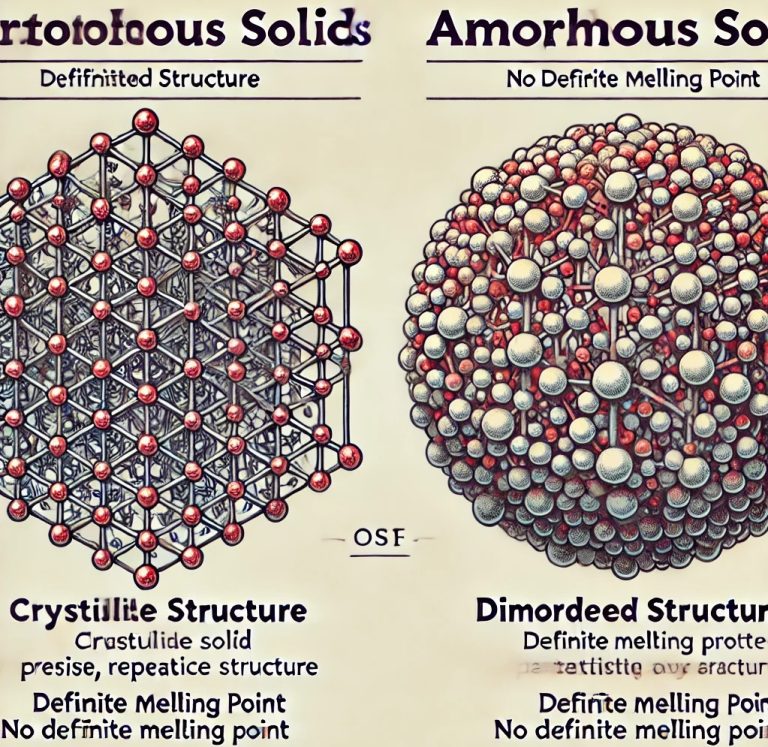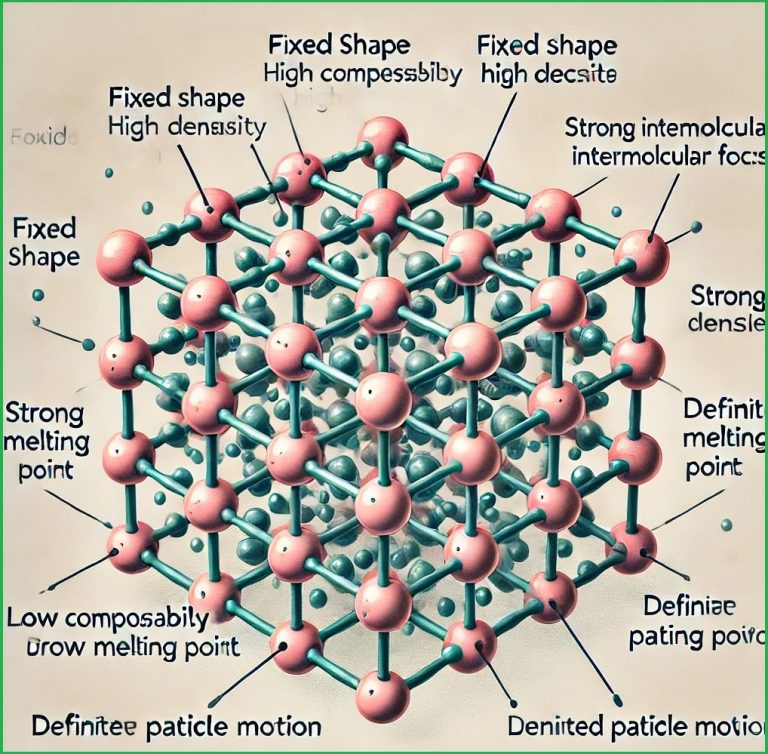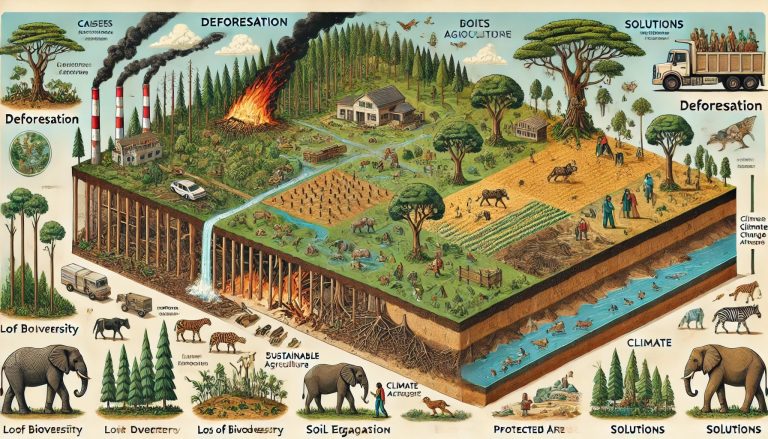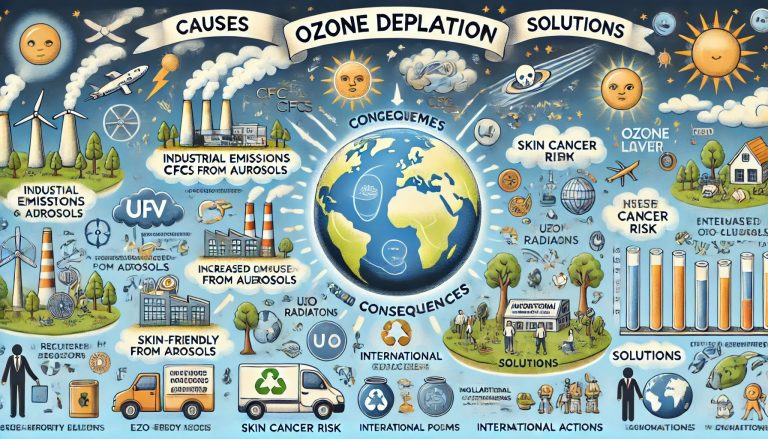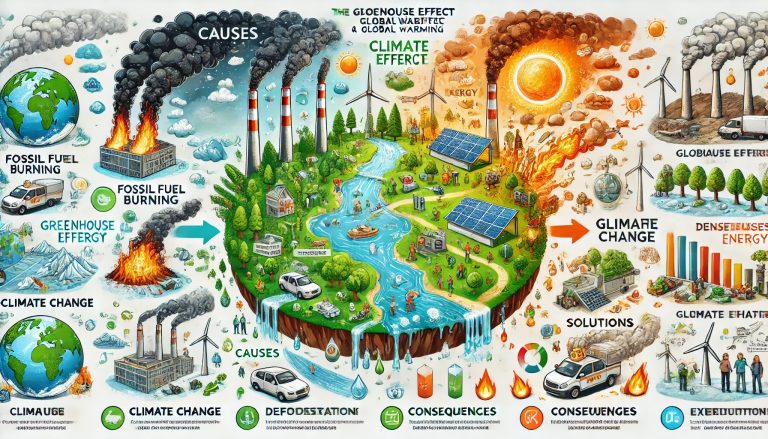Solubility, Vapor Pressure, and Related Concepts: A Detailed Explanation The study of solutions is fundamental in chemistry...
NCERT
Expressing the Concentration of Solutions: An In-depth Exploration Concentration is one of the fundamental concepts in chemistry,...
Types of Solutions: A Comprehensive Guide Solutions are homogeneous mixtures of two or more substances where the...
Crystal Lattice and Unit Cells: A Detailed Explanation Crystalline solids have an ordered, repeating atomic structure, often...
Classification of Crystalline Solids: An In-Depth Analysis Crystalline solids are defined by their highly organized and repeating...
1. Crystalline Solids Definition: Crystalline solids have particles (atoms, ions, or molecules) arranged in a regular, repeating...
The solid state of matter has several unique characteristics that distinguish it from other states, like liquids...
Deforestation: Causes, Impacts, and Solutions Introduction Deforestation, the large-scale removal or destruction of forests, is one of...
Ozone Depletion: Causes, Consequences, and Solutions Introduction The Earth’s ozone layer, located in the stratosphere, plays a...
Greenhouse Effect and Global Warming: Causes, Consequences, and Solutions Introduction The concepts of the greenhouse effect and...
Radioactive Wastes: Types, Management, and Environmental Impact Introduction Radioactive waste is a by-product of various human activities,...
Agrochemicals and Their Effects Agrochemicals, often referred to as agricultural chemicals, are substances or mixtures of substances...
Solid waste is any non-liquid, non-gaseous material that is discarded or rejected after use, including materials like...
Water Pollution and Its Control Introduction Water pollution is one of the most severe environmental challenges faced...
Air Pollution and Its Control Introduction Air pollution is one of the most critical environmental challenges faced...
